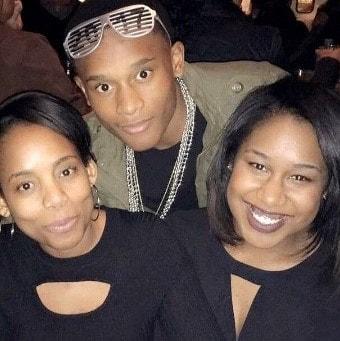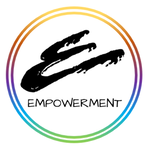|
I was the “black friend” that a lot of racists claim to have.
I didn’t come to terms with the experiences that formed my racial identity until my young adult life. My encounters with racial injustice were not as violent or as fatal as many of the police interactions I hear about nowadays. Most of what was said or done to me was in the form of racially-insensitive comments about how my perceived mannerisms did not reflect the race with which I identified. I was born to well-educated black parents, and while we weren’t super loaded or anything, we led a comfortable life. As a child, I remember walking through the front door and telling my mom how my day at school went. I carelessly put my backpack near the front door, and when my mom objected, I responded with “my bad”, a phrase commonly uttered by my black friends at school. She gently discouraged me from ever saying this again, and when I asked why, she said that it made me sound uneducated. From that day on, I spoke “proper English”, the type of English that is commonly associated with “talking white”. When I was in 7th grade, I had heard from one of my white friends that one of our black classmates had gotten assaulted by some other black students for “not acting black enough”. Her name was Melissa*, and although I did not know her too well, I had heard that she was popular amongst other students. At that moment, I felt a tightening in my chest, and I worried that something like this would happen to me someday. Almost as if reading my thoughts, my friend told me “You don’t have to worry about that, Devin. You’re not like the other black kids.” I don’t remember how I felt after I heard that, but I know it wasn’t a good feeling. I didn’t know it at the time, but this incident was the first step towards me realizing that my success, safety and “acceptance” in this world ultimately depended on the approval of white people, and that any attempts to connect with my heritage would be met with disapproval. I often think about this day, but probably not nearly as much as Melissa does. I spent my high school years at a predominately white private school in Louisiana, and it was an experience to say the least. Here are a couple of those racial encounters that I had mentioned earlier: • A white friend of mine said the n-word when talking to me about another person that she was displeased with, and when I expressed displeasure, she scoffed and said it “wasn’t a big deal”. • I dated a white guy, and he would constantly make anti-black “jokes” at my expense, and like an idiot, I would chuckle awkwardly in response. • While dating said white guy, someone wrote “n-word lover” on his locker in permanent marker. Wrote the full word with a hard “r” and everything. • During my senior year, I was voted “Whitest Black Person You Will Ever Know”. It was a weird space to be in, but if I had to describe it, it’s like a child receiving conditional love from their parents. As long as I did not “have an attitude” (i.e. display ANY degree of negative, even neutral, emotion), I would get compliments from adults saying how well-behaved I was. I felt so powerless until a few years ago at my job, when someone had said the n-word to me in casual conversation. I remember it feeling similar to what happened to me in high school, and the session ended with me politely but firmly telling the person to leave. The feeling of power and self-love that I had for myself in that moment was indescribable. I’m very lucky to work at a place that validates my experiences as a black woman in America. Until recently, I allowed people to say things to me that should have never been said. Sadly, bullies don’t go away after high school, so I’ve had to dig deep and learn a lot about myself over the past couple years, including how to love myself for all of my differences. Black people: Please, PLEASE do not allow other people to police your blackness. Using “degrees of whiteness” as the standard for acceptable behavior is a common tactic that racists use to divide and alienate people of color. More likely than not, you’ll have to step outside of your comfort zone to call out people who don’t think you’re black enough. However, you must understand that some of these people won’t like it, and may leave your life forever. This will be painful, but know that you’re not losing friends. You’re only losing manipulators, narcissists, and liars that used to benefit from your lack of boundaries. *names have been changed to protect the identities of people in this story - Devin Tempton, Staff at The Empowerment Program, Inc.
3 Comments
 I am eleven years old sitting in the back of my family’s old Buick. We are driving through a national park after a long day of swimming. My sisters and I are exhausted, but happy. We’re driving slowly watching the deer grazing in the trees and enjoying the breeze. I am wishing I had a hair tie that I could use to keep my hijab out of my face. As I’m wondering if such a product exists, blue and red lights fill my vision. A cop car has pulled up behind us and its flashing lights reflect through the crooked rear-view mirror. My father, a dark-skinned Middle Eastern man, pulls over. At age eleven, I still had the blissful idea that the adults would handle this situation and it would be over soon. I turn my attention to my father telling my older sister that they probably wanted to make sure we were okay. I look out my window and am faced with a police officer standing outside my window. There are three officers in total. Two on the driver’s side, where my father and I are sitting, and one on the passenger side, where my sisters are seated. I am not tall enough to see out the window properly and my only view is of this officer’s belt. I am transfixed by the contents surrounding his belt. The thick leather secures a handgun, handcuffs, a taser, and other things my eleven years old self could not identify. “How can I help you officer?” my father asks. He is using his polite, kind voice; I recognize something is wrong. The officer next to my father’s window doesn’t answer him. She stares in silence for a second. “Do you have an weapons on you or in the vehicle?” the words were said with such authority that I became terrified that we had an entire arsenal in the car, even though I knew the contents of this car by heart. But this officer also knew; she had to know. There was so much confidence, so much authority in her voice that I was so sure that she knew something we didn’t. “No, ma’am.” My father said still using his polite voice, “We’ve just drove down here for a swim and now we’re enjoying the deer.” “What is in your trunk?” the female officer asks. Was this normal? Was it normal for police to surround your car as your enjoying a drive through a national park? I thought they just wanted to make sure we were okay? These questions never left my mouth. I knew this was not a time or a place to say anything. My father was still using his polite voice. “Our swimming clothes, our cooler, a few Frisbees, food…” my father didn’t know how detailed the officer wanted him to be. “We need to see your trunk.” She states. It is not a question nor a request. It is a demand. My father does not refuse. Our car is old. My father has to manually unlock the trunk and put a certain amount of pressure in just the right place for it to open. My father explains this to the officers and asks if he can step out of the car to help them open the trunk. The officer says he can exit his vehicle, but they keep their distance and their hands rest on their belts. My father leaves the car and opens the trunk. My sisters and I wait. I peek around my open window and see one of the male officers holding my wet swimming clothes. I feel a pang of shame and humiliation. Those were not his to see or hold. I wanted to rip the clothes out of his hands and hide them away. They rummage through our trunk, pulling out clothes, trash, floaties, a beach ball, Frisbees, our cooler, and many more items. Were they still looking for weapons? What did they want? Eventually, they haphazardly shove everything back into our trunk. “You shouldn’t be driving so slow.” The female officer says. “I was trying to let my kids see the deer a little bit better.” My father states. “You shouldn’t be driving so slow. We’ll let you off with a warning this time.” With these parting words, the three officers walk back to their car. My father stands by our open trunk. He tucks some of our belongings into our trunk and closes it. He gets back into the car and drives off. We no longer stop or drive slowly to see the deer. -Anonymous by Leta CalvertBEAUTY IN CHAOS
THERE'S BEAUTY IN CHAOS LOOK AROUND THE WORLD AND SEE BLACK KINGS & QUEENS RISING WHILE WHITE PEOPLE HUMBLY BOW THEIR KNEES IS POSTURE IMPORTANT? AT THE END OF THE DAY ONE MUST LOOK BEYOND THE SURFACE IT WILL REVEAL WHAT THE HEART SAYS OUR YOUTH ARE CRYING OUT WE HEAR YOU LOUD AND CLEAR YOUR TEARS HAVE REACHED HEAVEN AND GOD ALMIGHTY HEARS! TO EVERYTHING THERE IS A SEASON AND A TIME TO EVERY PURPOSE UNDER THE SUN WE ARE A STRONG BLACK PEOPLE MAKING BEAUTIFUL CHILDREN DANCING AND HAVING FUN WE ARE ONE OF MANY CHOCOLATE HUES TREATED LIKE DIRT BUT IT’S A NEW DAY BLACK LIVES HAVE ALWAYS MATTERED FOR WE ARE THE ONES THAT POPULATED THIS EARTH IT’S TRULY A PRIVILEGE TO BE BLACK & I’M PROUD I HEAR J.B.’S SPIRIT DECLARING SAY IT LOUD I’M BLACK AND I’M PROUD BLACK IS NOT WHO WE ARE IT IS THE COLOR OF OUR SKIN WE WERE BORN UNIQUE INTELLIGENT BEINGS FROM THE VERY BEGIN! NO NEED TO FEAR US WE JUST WANT TO BE FREE FREE TO BE A PROUD BLACK PEOPLE NO LONGER WILL WE HANG FROM YOUR VISIBLE INVISIBLE TREES WHAT’S BEEN DONE IN THE DARK WILL CONTINUE TO COME TO THE LIGHT JEHOVAH SHAMA HEARS HIS ARMY IS PREPARED FOR THIS FIGHT WHAT’S GOING ON I HEAR MARVIN ASK? BLACK BEAUTY IN CHAOS OUR ANCESTORS GREAT CLOUD OF WITNESSES SPEAKING FROM THE PAST THANK YOU GEORGE FLOYD, BREANNA TAYLOR, ARMAUD ARBERRY AND THE NAMES YET TO BE TOLD WE HAVE BEEN THROUGH THE FIRE AND SHALL COME FORTH AS PURE GOLD THANK YOU COLEN KAEPERNICK FOR TAKING A KNEE YOU WERE BLACK BALLED AND PERSECUTED BEAUTY IN YOUR CHAOS,PAVED THE WAY NOW OUR FREEDOM RINGS AND RINGS AND RINGS…. -Leta Calvert, Staff at The Empowerment Program by Delsia Brown On November 15th, 2018, my life changed forever hearing the news that my only son and the youngest of my two children had died. In moments, my son had become another statistic. From an early age, Allen had always been a family person who was overprotective of his family, with an extremely generous heart, strong work ethic, goofy laugh, and an ever-present smile. I remember that morning vividly driving home getting off the I-25 highway and getting a phone call from one of his friends, asking me had I spoken to Allen. They heard a rumor that the person killed an hour ago by the Arapahoe PD was Allen. I never received a formal notice/call from the Sheriff’s Department notifying me that my son had been killed. I do not know why that still bothers me presently but it does. Maybe because I felt like they (the police) never viewed him as a victim or had enough respect to find me and tell me what they had done to my 18 yr old son. I have read/heard several different versions of what happened that morning, most of which is erroneous and insulting to who he was. They allowed the initial press release that was put out to fuel the justification of their actions. (He was in a love triangle—he was waving a gun around at the tire shop—accompanied by his female companion—he was possibly the aggressor of the situation that transpired between his female companion and her ex.) Unfortunately, because society at times will base their judgement from what they read or hear within the first 24/48 hours, the actions of the officers were justified, in the news and public view, and his name was tarnished even more. After a video surfaced online more light was shone on the situation. Upon the subsequent car chase involving my son, which was him going about 5 miles over the speed limit, they boxed in his vehicle. The officers gave him directives again, and at some point one of the officers involved proceeded to try and break the drivers side window open with the butt of his gun (At one point the clip fell out of the officers gun). After a couple minutes, based on the body cam footage of one of the officer, Allen’s hands went up. It is said to be unclear to the officers whether he had a gun in his hand, but the windshield wiper was hit, the blades started moving and the officers started shooting. Allen was about 130 pounds standing at best 5”9”/ 5”10”. Of the over 35 bullets that were fired by the officers, 5 of those bullets hit my baby. My mind frequently goes to how frightened he must have been surrounded by the police cars and then to have officers approach the vehicle and yelling at him. My heart breaks for him each time I relive that moment in my head. The bullets tearing through his tiny body. The body cam footage finally given to us months later are inconclusive because we can make out what looks like the outlining of his car’s rear-view mirror, which they claim is the outlining of a gun. There is so much to the story that I cannot wrap my mind around. I was informed by witnesses that Allen was the one telling people at the tire shop to call the cops. Officers went on the aggressor’s version of the story as one of the reasons to pursue him after he left the tire shop’s parking lot. The need to fire upon his vehicle within minutes after him pulling over when they could have called for someone to talk him out the car. The body cam footage lacks clarity, so we only have officers’ word of them seeing a gun in his hand. Allen was a teenager, who had made his own share of mistakes in the past. But they were learning lessons he was going to grow from. I’ve read the stories about other black men who have been killed by police and their past mistakes immediately being dug up and released to justify their death and summarize their life. But we all have a past and have made mistakes. My son did not have the life you can google and judge based on what you read of the last hour of his life. He had family members that loved him tremendously and he had a right to correct his past and live for his future. The victim’s family are shamed with the possibility of people digging up the past of your loved one’s life, as if this summarizes their life in entirety, when they are killed by the hands of the police. The goal is to demonize our loved ones, when they are killed by the people who have sworn to serve and protect us. It is emotionally, physically, and financially draining to fight for the truth. The trend of victim shaming and victim blaming has to stop. We must now organize for reforms and changes for the people that are paid to serve and protect us and work as a unified community. I will never experience any more firsts with my son, no grandchildren, no wedding— no mother and son dance. His first home and first business. I remember growing up and hearing that a parent should never bury their child because the hurt and heartbreak is a different kind of pain. I never thought I would be that parent and he would be that child. I know I will miss and need my son for the rest of my time on this earth. Will Smith put it best, “there are not more incidents of racially based police use of excessive force, people are just filming it now”. # AllenFanning # Weallhaveapast # BlackLivesMatter # Theyarevictimsnotcriminals # violenceonviolencedoesnotsolvetheissue #Amotherspain #afamilysloss -Delsia Brown, Staff at The Empowerment Program, Inc. |
Archives
March 2021
Categories
All
|

 RSS Feed
RSS Feed